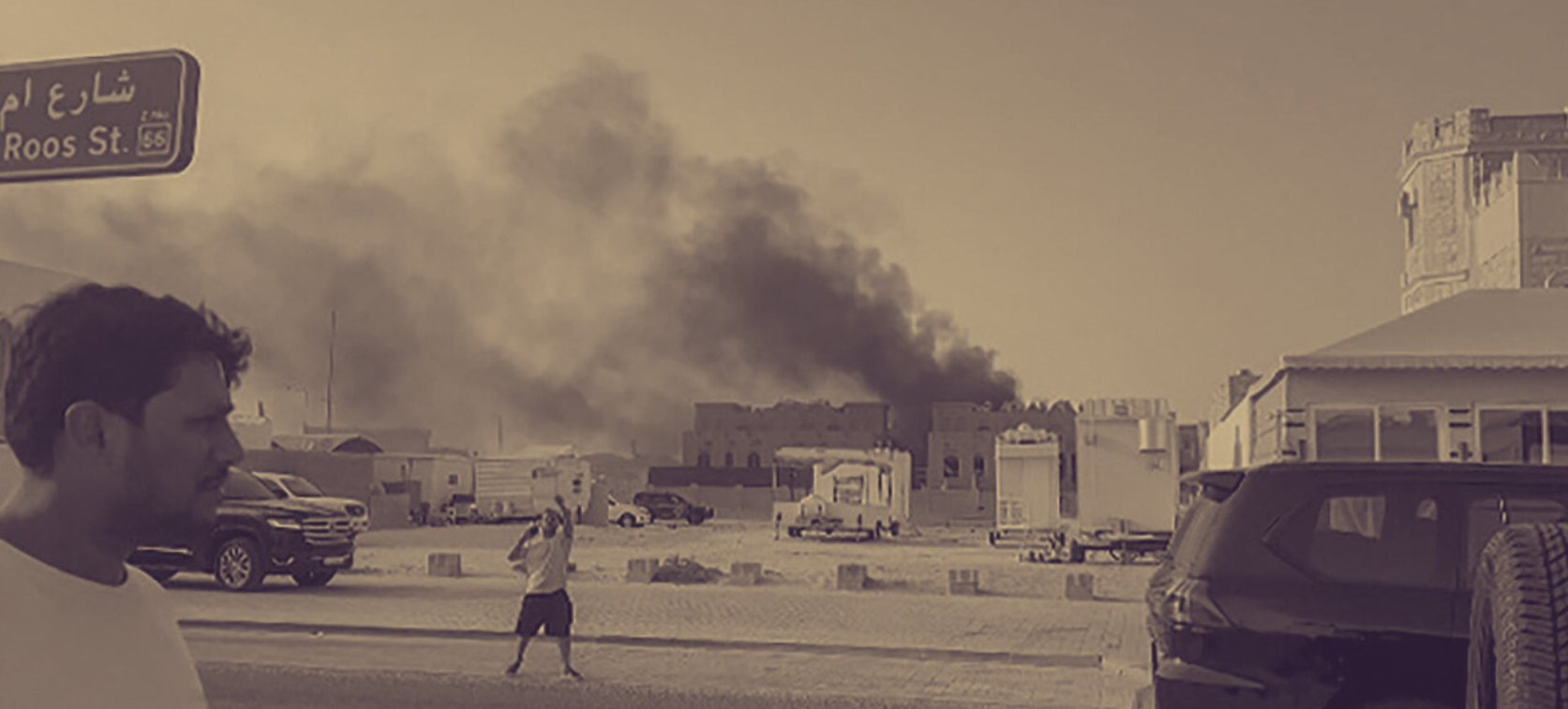Israel’s strike on Doha has exposed, yet again, the empty theatre of Arab state politics. This is the politics of the nation state in its most hollow form: talk loudly, act little, and shout “help” the loudest when the moment of truth arrives. Qatar — with billions in fighter jets, squadrons of Rafales and Typhoons, and the largest U.S. airbase in the Middle East on its soil — could neither defend itself nor rely on its patron to shield it.
There was a time when the Arab spoke of honour as if it were his very breath. Before oil wealth, before palaces and foreign masters, Arab identity was defined by muruwwa — manliness, dignity, and the refusal to bow to humiliation. To be Arab was to guard one’s neighbour, to avenge one’s people, and to never sell dignity for gold.
The Qur’an already told us this story through the account of Talut (Saul) and the Children of Israel:
“Have you not considered the chiefs of the Children of Israel after Musa, when they said to a prophet of theirs: ‘Appoint for us a king, and we will fight in the cause of Allah.’ He said: ‘Is it not possible, that, if fighting is prescribed for you, you will not fight?’ They said: ‘Why should we not fight in the cause of Allah, when we have been driven out from our homes and our children?’ But when fighting was ordained for them, they turned away — all but a few of them. And Allah knows well the wrongdoers.”
(Surah al-Baqarah 2:246)
They demanded a king, and Allah gave them Talut. Yet when he tested them, most of the army turned back, abandoning their own words of defiance. The Qur’an records how Talut led them to the river, where he told them:
“Indeed, Allah will test you with a river. Whoever drinks from it is not of me; and whoever does not taste it is indeed of me — except one who takes a sip with his hand. But they drank from it, except a few of them. Then when he had crossed it — he and those who believed with him — they said, ‘We have no power today against Goliath and his soldiers.’ But those who were certain that they would meet Allah said, ‘How many a small company has overcome a large company by permission of Allah. And Allah is with the steadfast.’”
(Surah al-Baqarah 2:249)
The parallel to Qatar could not be clearer. On paper, Qatar is armed to the teeth:
- 36 Rafales, 36 Typhoons, 24 F-15QAs, plus Mirage 2000-5s.
- It has poured $243.5 billion into U.S. contracts, gifted Trump a $400 million Boeing, and announced commitments totalling $1.2 trillion.
Yet when its test came — when bombs fell on Doha — the rulers behaved exactly like those who failed the river test: they had wealth, they had arms, but they had no will.
Just as most of Talut’s soldiers gave in to thirst and fear, Qatar’s rulers gave in to dependence on Washington. Their Prime Minister even excused America, saying Washington had only been informed late — a humiliating admission that Qatar’s “protector” would neither prevent nor avenge an attack on its capital.
This is not unique to Qatar. It is the fate of every Arab ruler who has chosen to bow to America. Time and again, the strings of these puppet regimes are cut by Washington — and time and again, they tie themselves tighter, begging for protection that never comes. Their chance to break free was when the women and children of Gaza cried out. That was the river they were asked to cross. Instead of courage, they drank deeply of cowardice. Instead of standing firm, they turned to diplomacy, placing their “god,” the United States, upon the altar and prostrating before him.
Al-Mutanabbī, the Arab poet wrote words that echo across centuries:
عَارُ الفَتى لا يَزولُ بَعدَ مَوتِهِ
وَتُورِثُهُ ذُلّ البَنينَ عَنِ الأَبِ“The disgrace of a coward does not end with his life, It is inherited by his children after him.”
Rulers who prostrate before foreign powers, who protect palaces and abandon peoples, would be remembered not for their riches but for their cowardice.
“And when they went forth to face Goliath and his forces, they said: ‘Our Lord, pour upon us patience, make firm our feet, and grant us victory over the disbelieving people.’ So they defeated them by the will of Allah, and Dawud killed Goliath, and Allah gave him kingship and wisdom, and taught him what He willed. And if Allah did not check one people by means of another, the earth would have been corrupted. But Allah is full of bounty to the worlds.”
(Surah al-Baqarah 2:250–251)
This is the lesson our rulers refuse to learn. Victory does not come from Boeing, from Washington, or from diplomacy. It comes from standing firm in truth, relying on Allah, and paying the price of resistance.
The Doha strike has concluded the chapter of Arab rulers and the politics of the nation state. Billions in weapons mean nothing if they are not used; alliances mean nothing when they collapse in the first test; sovereignty is a fiction when Israel can bomb an Arab capital with impunity.
And so, history will remember this simple truth: it is better to be few with Allah than to be many with tyrants.
Need Help?
-
[email protected]
-
Follow us on Instagram
-
Follow us on TikTok
